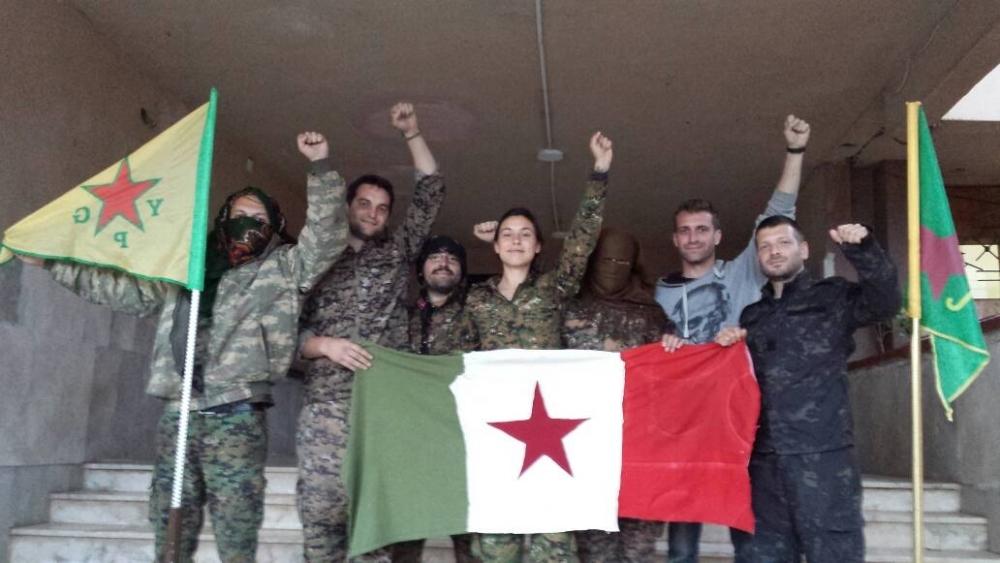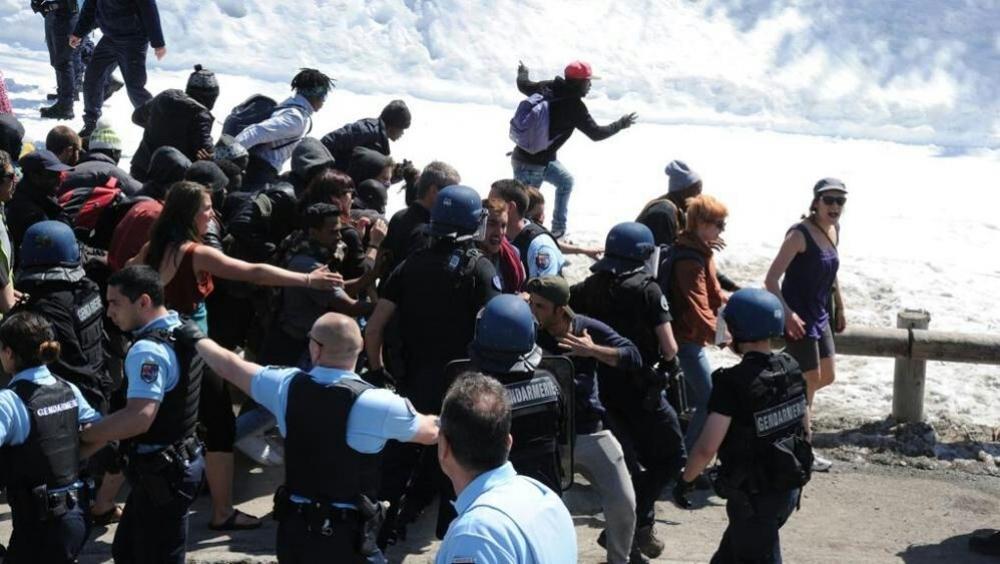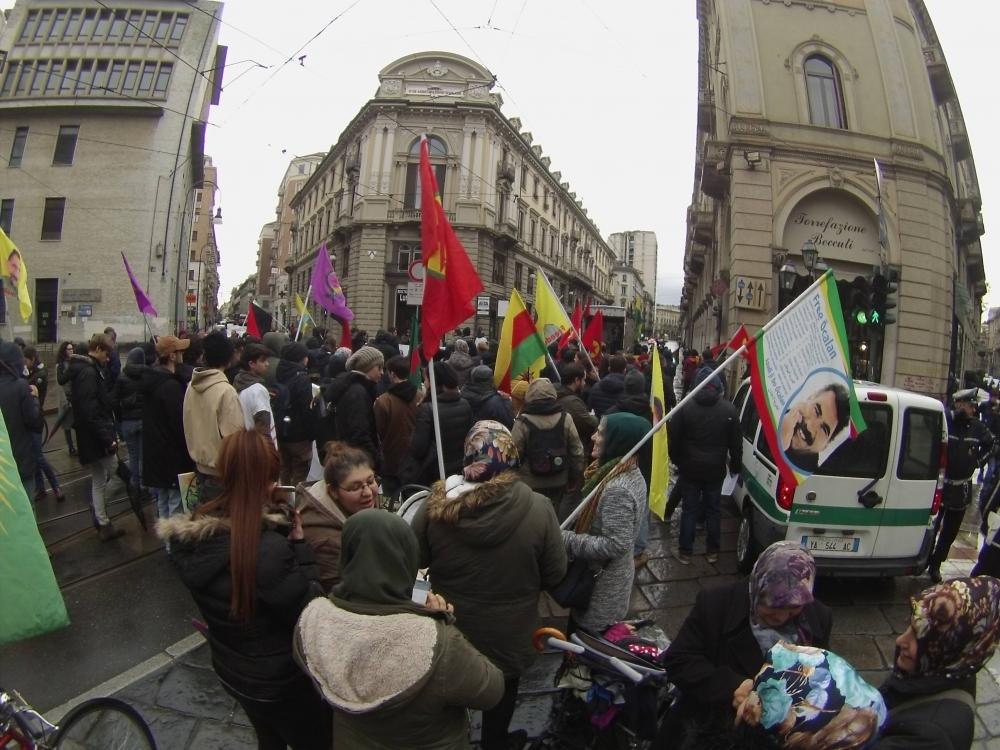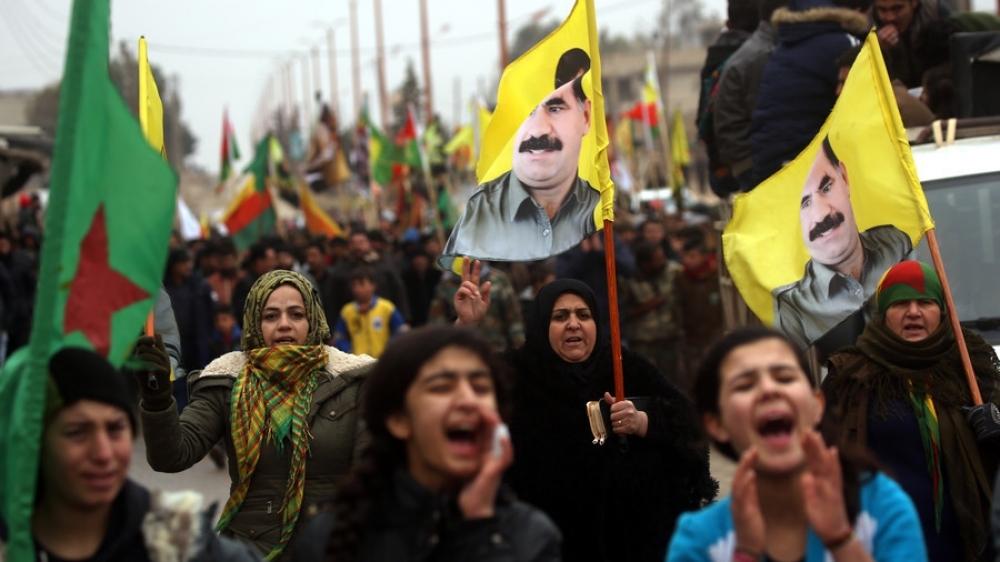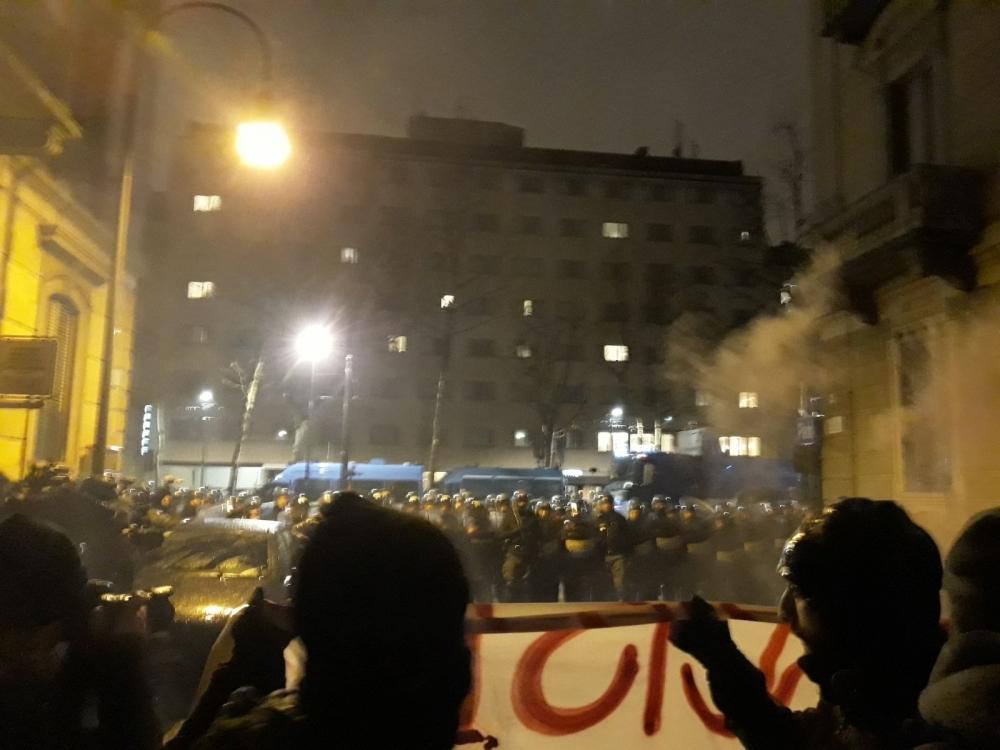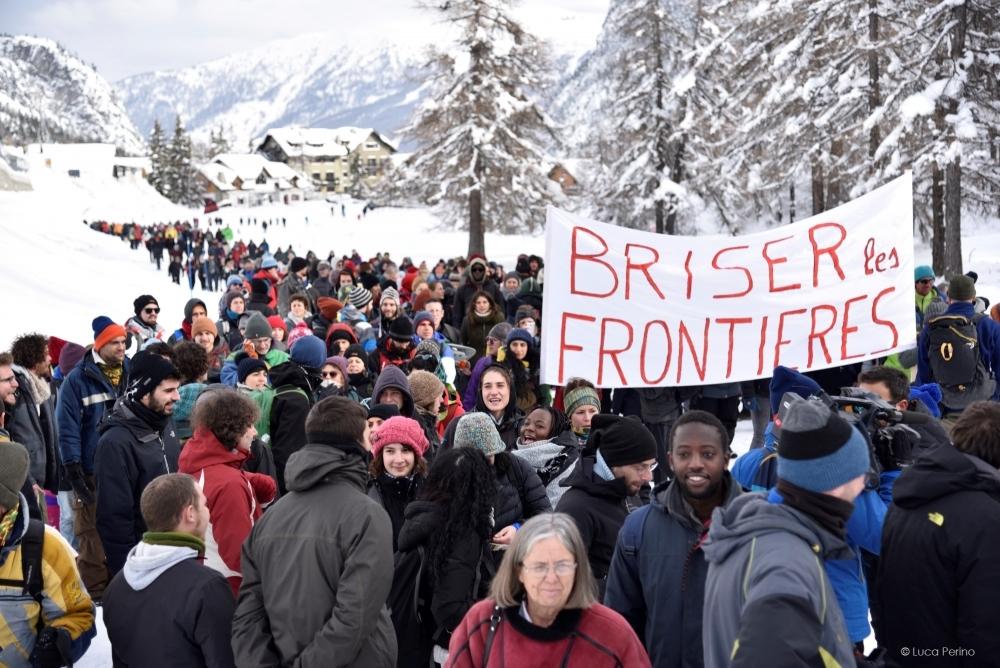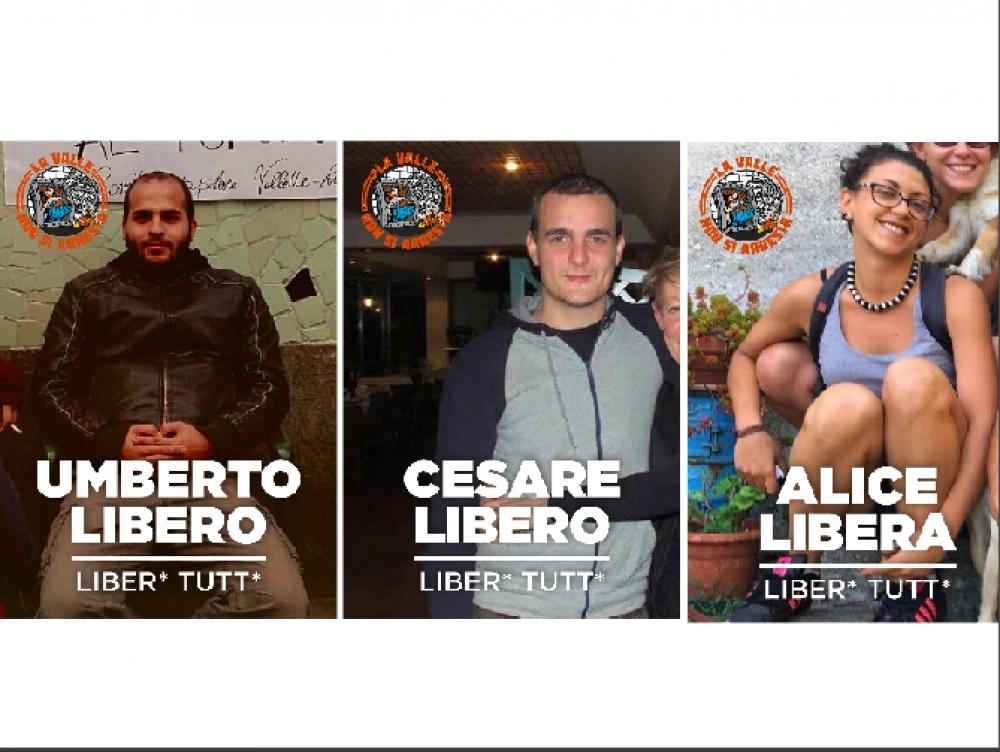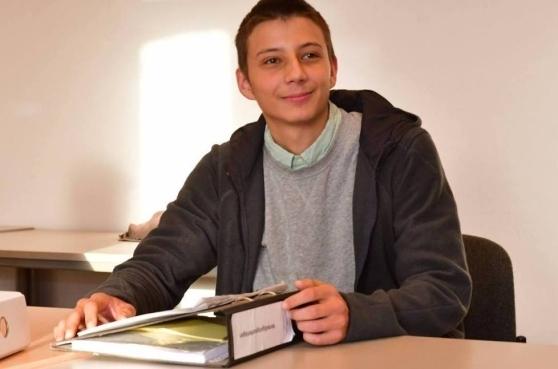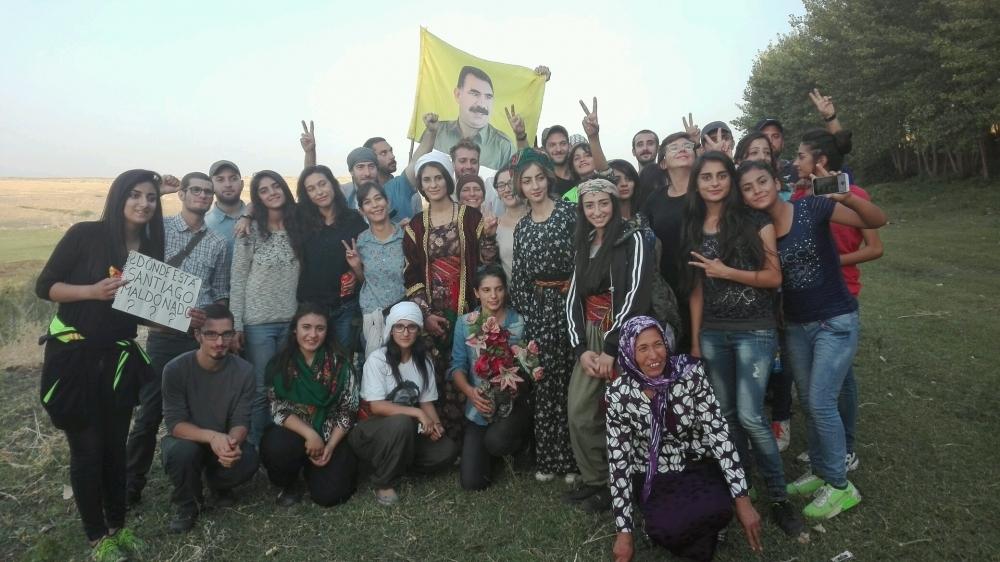
“Refugeeism”, the ideology of Fortress Europe
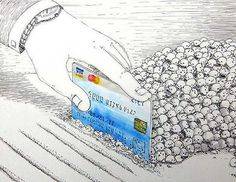
The category of refugee, or political refugee, was not born in the rhetoric of this week. However it is now that it seems to assume particular centrality in the political discourse. The European institutions have always had the tendency to ignore, where ever possible, the presence within its territories of ‘non economic’ migrants precisely because the legal requirements to which these individuals were subjected made them inconvenient to administer: women and men whose ‘welcoming’ was imposed by international law even when there did not exist access to a scholarship or the invitation for a job. Better to insist on the discipline of ordered entries, connecting the granting of visas with the former hiring and attempting in this way to distinguish the presumed orderly traveler from those who are in disarray and a potential problem for the public order.
The flows of recent months have made necessary a new configuration, according to which the German government has tried in the past few weeks, with varied results, to promote itself as leader. Today’s migrations are the product of the political upheavals of north Africa and western Asia. The civil wars in Libya and Syria weigh heavy: the former for having opened for some time flaws in the draconian management of the subsaharan flows that Gheddaffi had, in his time, agreed with Berlusconi; the latter for having driven millions of people from the Syrian regions towards countries that were in turn unstable such as Iraq, Lebanon or Turkey, thereby producing the desire to continue the voyage towards richer countries – those of Northern Europe.
In this situation where, even without falling for the alarmist propaganda of the official media, the numbers of migrants have notably risen – as has also their determination to cross borders and reach chosen destinations, even at the cost of identification and the violence of the police – the European capitals have not ceased needing low cost manual labour, but at the same time they cannot renounce, thanks to their ruling classes, to draw benefit from the resentment towards new arrivals (persistent or induced) felt by large parts of a population tired of austerity. The revived interest in the category of ‘refugee’ is the new criterion to administer exclusion precisely where recourse to standard procedures does not appear possible.
This doesn’t mean that the economic criterion doesn’t continue to be the motor of institutional action. The Merkel government, on behalf of German enterprise (but in contrast to certain currents from deeper within Germany), looks with interest to the entry of Syrian migrants currently making the journey from Turkey. Belonging often to the educated classes, coming from a country where the education system is rather advanced, often bearers of a specialised labour power or intellectual training (as opposed to those migrants oriented mostly towards generic occupations who come from other countries), they seem to represent a human commodity potentially profitable for German businesses. Such a plan renders necessary, however, an efficient bureaucracy of immigration. For this the border countries, like Italy and Greece, are currently being spurred to institute, with promptness and rigor, centres of identification, classification and deportation (the hotspots) which permit ordered entry towards the northern borders (a requirement which is necessary in order to freely enter the material phase of German “solidarity”).
That’s not all. Notoriously Syria represents a military objective for the United States and France, just as, in its time, Libia, which was thrown into the chaos of being bombed (also by Italy) in 2011. Focusing attention on the humanitarian tragedy in Syria can also have, for the European powers, a propaganda-military advantage, preparing their populations for the eventuality of an armed intervention. The political-military factor is aggressively at work in the current phase. The north Iraq turn of 2014 opened a phase of instability that freed, according to contrasting lines of force, energy and space for numerous dormant contradictions, latent or past in western Asia: from the crises of the Arab regimes and puppet governments to the political-military legacy of the Afghan and Iraqi resistances, and extending to the deepening of the Sunni-Shia contrast and the unresolved Kurdish, Lebanese and Palestinian questions.
That which is happening is nothing more than one of the collateral effects of this multiform fire, and they migrants of today, like those of all times, bring with themselves this baggage of political and social tension. It’s not by chance that we witness migratory dynamics that, from Ventimiglia to Calais, passing through Gevgelija and Rozske, assume the character of true rebellions. It would be then short sighted to ignore the contradictions that move along the face of the planet along with its people, just as those which live with the people who are moving. The universe of migrants is not an evanescent and heterogeneous space, but rather a universally lacerated material existence, jagged and stratified. Can we forget the boats that reached Sicily carrying Libyans, Syrians and Maghrebs authorised to breath, and Bengalese and Pakistanis assassinated in the hold, along with subsaharans squashed to die on the bottom of the bottom, under the deck, in a terrible racial hierarchy determining access to hope or death for human beings?
It is this process of selection, filtering and establishing of hierarchies – just as much in the wild form of of the illegal market as in the juridical institutional market – that we must today refute with extreme clarity. The widespread call for a solidarity characterised by the rhetoric of ‘refugeeism’ can, then, in the current context, assume a dangerous and ambiguous meaning. It is necessary to dismantle the idea according to which the economic conditions do not constitute a legitimate foundation for the decision to emigrate, considering not only the fact that the economic wealth and destitution of different geographic areas and social classes are interconnected, but also that the dynamics of war and political persecution have economic origins that can be ascertained at all times.
Criticism of the politics of death and subordination advanced in the Mediterranean cannot, in the end, flatten notions of freedom, oppression or war to those definitions pertaining to the level of international law – featuring a one-sided representation, which is both historically situated and politically insufficient . If the benefits of the acquired right must always be claimed in those places where historical conquests emerge from the legal sediment following past struggles and upheavals, our interest is to construct the counter-position that lives for change within today’s upheavals. A counter position that feeds off a solidarity different to that (hypocritical) one of the institutions, which through the use of state borders exceeds even the static nature of the deliberately ambivalent legal categories, which are bended by the dominant discourse to the necessity of administering, managing and controlling new, fearsome social contradictions.
Ti è piaciuto questo articolo? Infoaut è un network indipendente che si basa sul lavoro volontario e militante di molte persone. Puoi darci una mano diffondendo i nostri articoli, approfondimenti e reportage ad un pubblico il più vasto possibile e supportarci iscrivendoti al nostro canale telegram, o seguendo le nostre pagine social di facebook, instagram e youtube.











